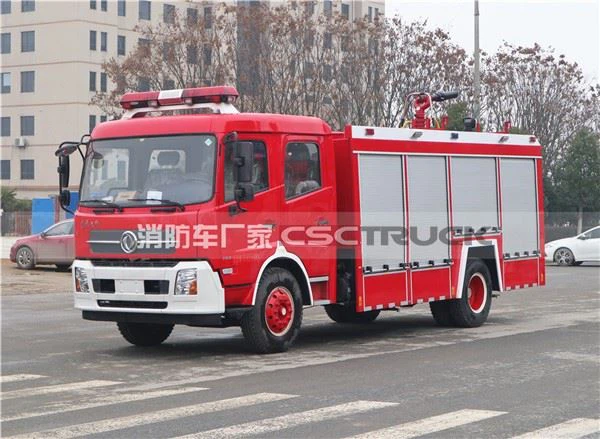Finding the Best Used Vactor Truck for Sale: A Comprehensive Guide

Vactor trucks are essential tools for municipalities and contractors involved in sewer maintenance, drain cleaning, and other industrial applications. If you’re in the market for a used vactor truck, it’s crucial to find the right one that fits your needs while ensuring you make a smart investment. This article will guide you through everything you need to know about purchasing a used vactor truck, from understanding the different types available to tips on inspecting and buying one.
Table of Contents

- Understanding Used Vactor Trucks
- Key Features of Vactor Trucks
- Types of Vactor Trucks
- Where to Find Used Vactor Trucks for Sale
- Evaluating a Used Vactor Truck
- Financing Options for Vactor Trucks
- Maintenance and Operating Costs
- Common Issues and How to Avoid Them
- Practical Tips for Buying a Used Vactor Truck
- Frequently Asked Questions
Understanding Used Vactor Trucks
A used vactor truck is typically a pre-owned vacuum truck designed for a variety of applications, including sewer cleaning, excavation, and industrial waste removal. They use a combination of suction and high-pressure water jets to clear debris from pipelines and other underground structures. Purchasing a used vactor truck can offer significant savings while providing a reliable vehicle for your business needs.
Key Features of Vactor Trucks
Before diving into the purchase process, it’s essential to understand the key features that make vactor trucks valuable:
1. Vacuum System
The vacuum system is the heart of a vactor truck. It is crucial for efficiently removing waste materials. Look for trucks with powerful vacuum systems rated in CFMs (Cubic Feet per Minute) that align with your intended applications.
2. Water System
A high-pressure water system is equally important for flushing out debris. Most vactor trucks have water tanks ranging from 500 to 2,000 gallons.

3. Storage Capacity
Consider the storage capacity for both waste and clean water. Larger tanks will allow for more extended operations without needing to empty or refill frequently.
4. Chassis Quality
The truck’s chassis should be robust and well-maintained as it supports the overall weight and impact of the truck’s operation.
5. Accessibility
Inspection ports and easy access to the interior of the tank are beneficial for maintenance and cleaning.
Types of Vactor Trucks
Different models of vactor trucks cater to various industries and requirements.
1. Combination Trucks
Combination trucks combine vacuum and jetting capabilities which are ideal for general cleaning and maintenance applications.
2. Hydro Excavators
Hydro excavators are designed for digging or excavating in hard soil or frozen earth, using high-pressure water for safe ground penetration.
3. Standard Vacuum Trucks
These trucks focus primarily on waste removal and typically feature larger storage capacity for debris.
4. Sewer Cleaning Trucks
Specialized for sewage systems, these trucks are equipped with tools specifically tailored for pipe cleaning and maintenance.
Where to Find Used Vactor Trucks for Sale
When looking for a used vactor truck, consider the following sources:
1. Dealerships
Authorized dealerships may offer certified used trucks with warranties, which can provide peace of mind.
2. Online Marketplaces
Websites like Craigslist, eBay Motors, and specialized vehicle sales sites often list a variety of used vactor trucks.
3. Auctions
Government and municipal auctions can yield excellent deals on used vactor trucks, often well-maintained and in good working condition.
4. Industry Trade Shows
Trade shows allow buyers to network with sellers and compare multiple trucks in one location.
Evaluating a Used Vactor Truck
Before making a purchase, thorough inspection and evaluation of the truck are necessary to ensure quality.
1. Check the Service History
Request documentation of maintenance and repairs made on the truck. Consistent upkeep signifies a well-cared-for vehicle.
2. Inspect the Components
Examine both the vacuum and water system for wear and tear, including hoses, tanks, and pumps.
3. Test Drive
A test drive can give insights into the truck’s performance, including handling and any unusual noises or vibrations.
4. Calculate the Cost-effectiveness
Consider the overall costs, including potential repairs, to ensure that the investment suits your budget.
Financing Options for Vactor Trucks
Understanding your financing options can make or break your ability to purchase a used vactor truck.
1. Bank Financing
Traditional banks may offer loans with competitive rates, but they might require a detailed financial history.
2. Manufacturer Financing
Some manufacturers provide financing plans that may be more accessible than traditional loans.
3. Lease-to-Own Options
Leasing can be a viable temporary solution that allows you to use the truck while making payments to eventually own it.
Maintenance and Operating Costs
Understanding maintenance and operating costs is crucial for budgeting. Key considerations include:
| Cost Type | Estimated Annual Cost |
|---|---|
| Fuel | $5,000 – $15,000 |
| Maintenance and Repairs | $2,000 – $10,000 |
| Insurance | $1,000 – $3,000 |
| Depreciation | 10% – 15% per year |
Common Issues and How to Avoid Them
When buying a used vactor truck, be aware of potential issues:
1. Mechanical Failures
Regular maintenance records can help verify the truck’s mechanical history.
2. Environmental Compliance
Check local regulations to ensure that the truck meets necessary emission standards.
3. Unsuitable Specifications
Ensure that the truck’s capabilities meet your needs to avoid overpaying for underperformance.
Practical Tips for Buying a Used Vactor Truck
To help you in your purchasing journey, consider these practical tips:
1. Research the Market
Before negotiating, research market prices to know what’s reasonable for the model you want.
2. Don’t Rush
Take your time in evaluating the truck and don’t let pressure push you into a hasty decision.
3. Be Ready to Negotiate
Don’t hesitate to negotiate the price. Sellers often leave room for bargaining.
4. Inspect Multiple Options
Inspect multiple trucks to compare condition, price, and features before making a decision.
Frequently Asked Questions
1. What is the average lifespan of a vactor truck?
The average lifespan of a vactor truck is around 10-15 years, depending on maintenance and usage.
2. How much can I expect to pay for a used vactor truck?
Prices for used vactor trucks can range from $30,000 to $200,000, depending on age, condition, and specifications.
3. Are used vactor trucks worth the investment?
Yes, if properly maintained, used vactor trucks can be a cost-effective option for municipalities and contractors.
4. How can I ensure I’m buying a quality used truck?

Research the truck’s history, conduct a thorough inspection, and consider getting an expert opinion if necessary.
5. What are the most important features to look for?
Key features include the vacuum and water systems’ efficiency, storage capacity, and overall chassis integrity.
6. Can I finance a used vactor truck?
Yes, there are various financing options available, including loans from banks or manufacturer financing deals.
